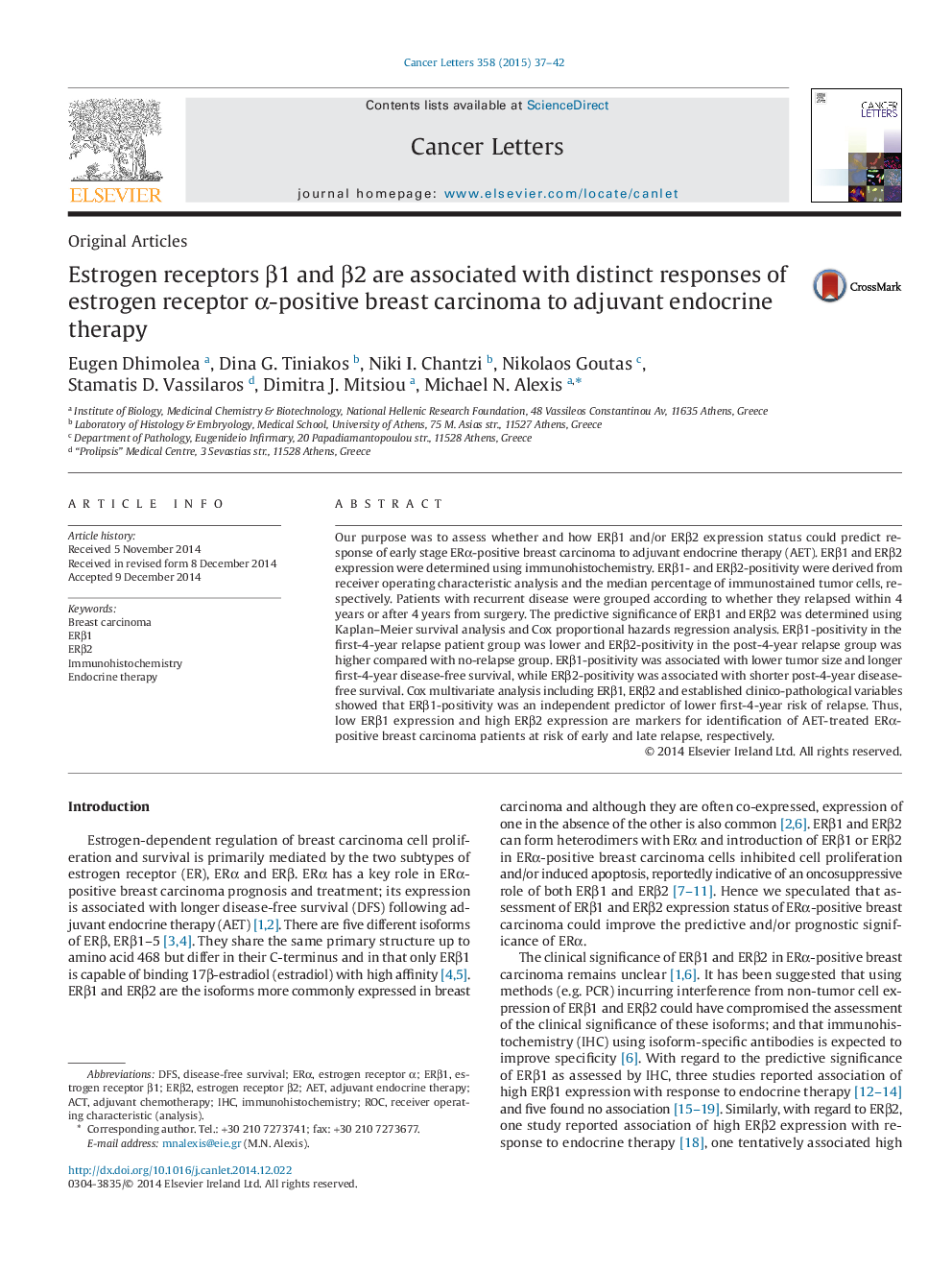| Article ID | Journal | Published Year | Pages | File Type |
|---|---|---|---|---|
| 2116151 | Cancer Letters | 2015 | 6 Pages |
•We studied relapse of ERα+ breast carcinoma treated with adjuvant endocrine therapy.•We determined the expression status of ERβ1 and ERβ2 using immunohistochemistry.•High ERβ1 expression predicted lower risk of recurrence within 4 years from surgery.•High ERβ2 expression predicted higher risk of recurrence after 4 years from surgery.•The expression status of ERβ1 and ERβ2 may aid making adjuvant therapy choices.
Our purpose was to assess whether and how ERβ1 and/or ERβ2 expression status could predict response of early stage ERα-positive breast carcinoma to adjuvant endocrine therapy (AET). ERβ1 and ERβ2 expression were determined using immunohistochemistry. ERβ1- and ERβ2-positivity were derived from receiver operating characteristic analysis and the median percentage of immunostained tumor cells, respectively. Patients with recurrent disease were grouped according to whether they relapsed within 4 years or after 4 years from surgery. The predictive significance of ERβ1 and ERβ2 was determined using Kaplan–Meier survival analysis and Cox proportional hazards regression analysis. ERβ1-positivity in the first-4-year relapse patient group was lower and ERβ2-positivity in the post-4-year relapse group was higher compared with no-relapse group. ERβ1-positivity was associated with lower tumor size and longer first-4-year disease-free survival, while ERβ2-positivity was associated with shorter post-4-year disease-free survival. Cox multivariate analysis including ERβ1, ERβ2 and established clinico-pathological variables showed that ERβ1-positivity was an independent predictor of lower first-4-year risk of relapse. Thus, low ERβ1 expression and high ERβ2 expression are markers for identification of AET-treated ERα-positive breast carcinoma patients at risk of early and late relapse, respectively.
